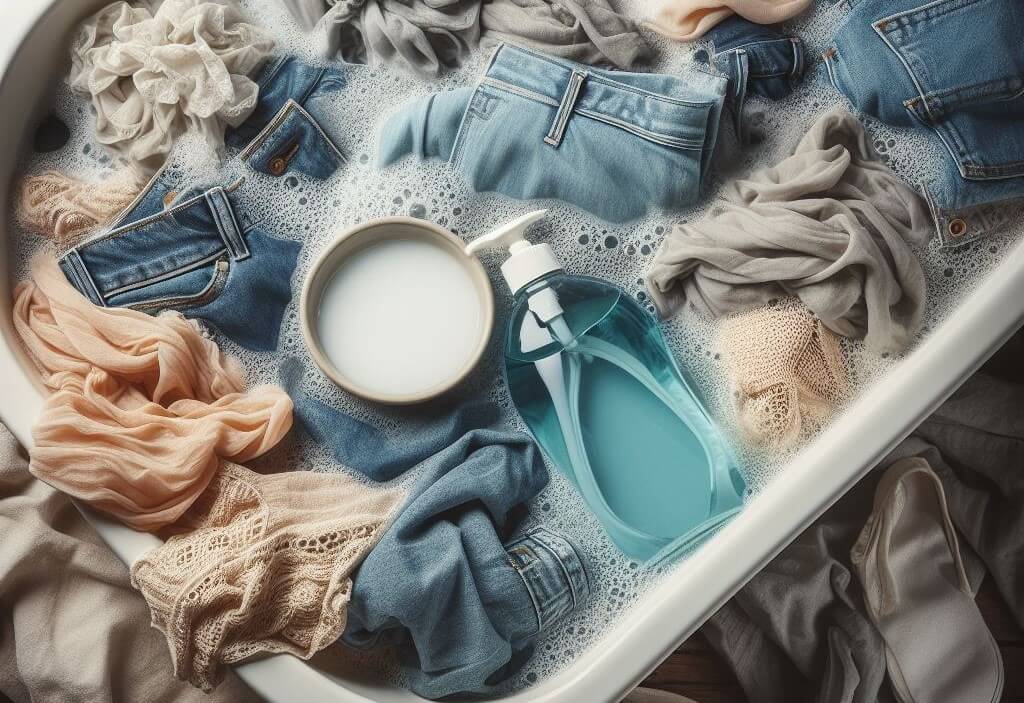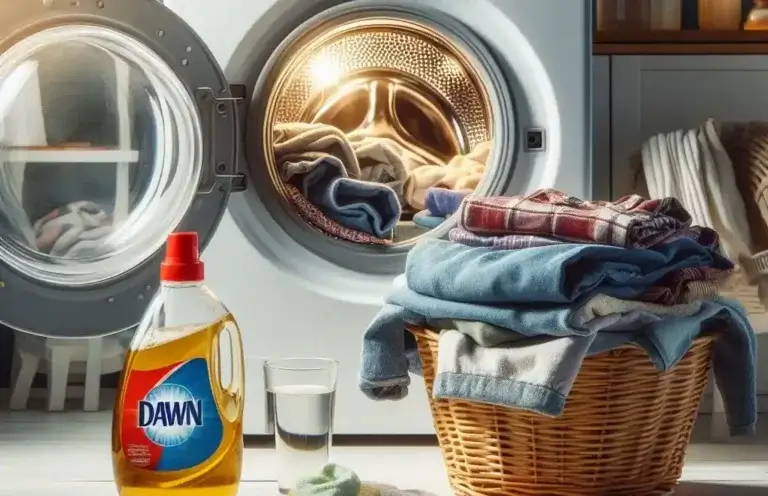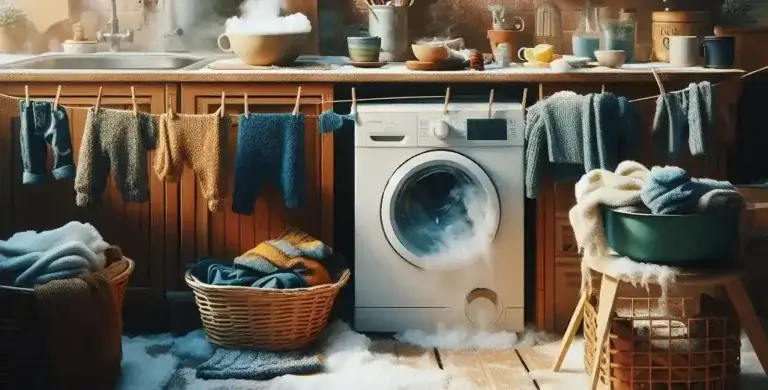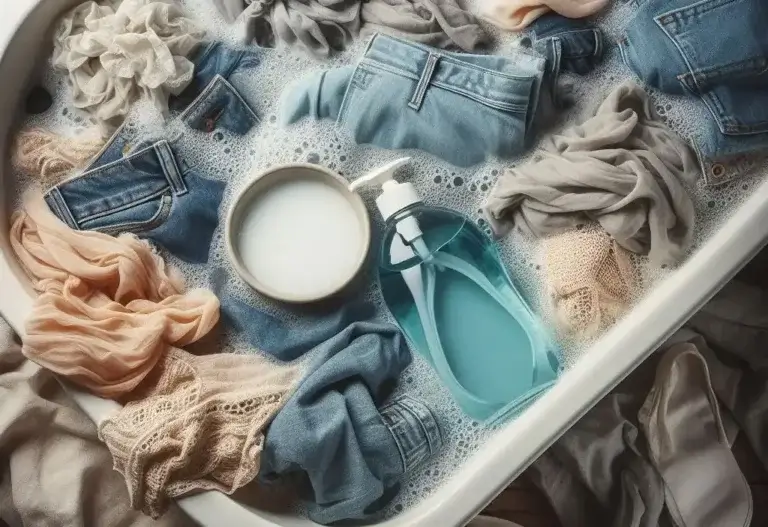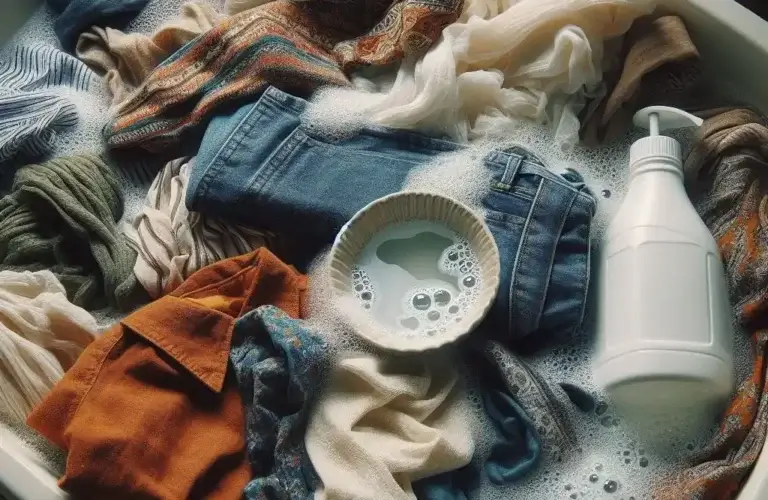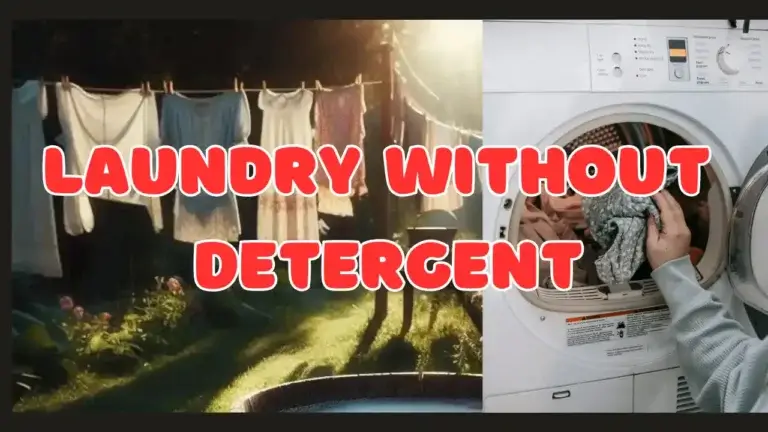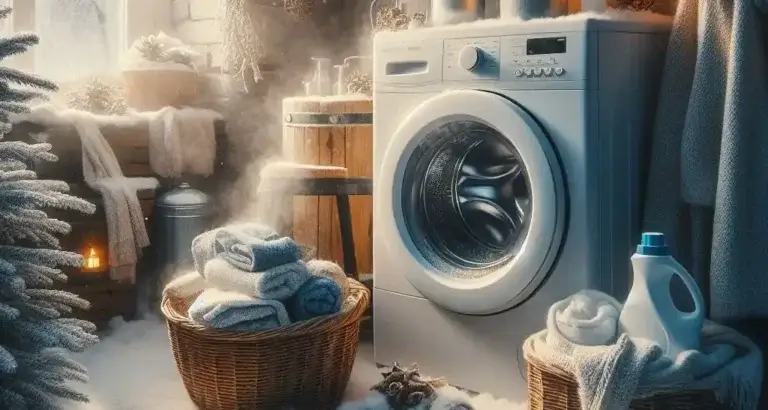Can I Wash Clothes During a Boil Water Advisory? Your Top 10 FAQs Answered
A boil water advisory can leave you with many questions about what you can and cannot do with your home’s water. Should you wash clothes using the water supply that’s under the boil water advisory? Is the washing machine safe to use?
What about washing dishes or taking showers using a water supply under the boil water advisory? This guide will answer your top 10 frequently asked questions about boil water advisories so you know exactly when to boil for at least one minute and when to allow the water to cool before use.
Washing clothes during a boil water event can be done, and it is generally considered safe. The main thing to remember is to use tap water and ensure the clothes are completely dried before they are worn. This is important because, during such an event, the turbidity in the water might be higher, which means there could be particles that might discolor your clothing, especially whites.
From personal experience, I once had to wash my favorite white shirt during a boil water event and noticed some slight discoloration. However, the shirt was fine after I let it dry completely. So, while it’s possible to do your laundry, be mindful of the potential for increased turbidity that can affect the clothing’s appearance.
Table of Contents
What is a Boil Water Advisory and Why is it Issued?
A boil water advisory also called a boil water notice, is issued by local health or environmental authorities when tests show bacterial contamination in the public water system or when conditions make contamination likely. Most boil advisories last a few days to a week until testing confirms that boiling the water for at least 1 minute makes the tap water safe again.
Boil water advisories aim to protect public health by ensuring people do not ingest water that may contain disease-causing microbes like E. coli, Salmonella, Shigella, Campylobacter, viruses, parasites, or other bacteria and infectious diseases. Contamination of the water supply can occur due to water line breaks, equipment failures at water treatment plants, flooding and heavy rains, or other issues.
During a boil notice, residents are asked to boil tap water to a full roll before use for drinking, brushing teeth, washing fruits and vegetables, preparing baby formula, making ice, or any ingestion, and allow the water to cool before use. Boiling the water for at least one minute kills bacteria and other microbes which could cause illness. Advisories also include guidance on showers, laundry, washing dishes, pets, and more.
Washing Clothes During a Boil Water Advisory: A Complete Guide
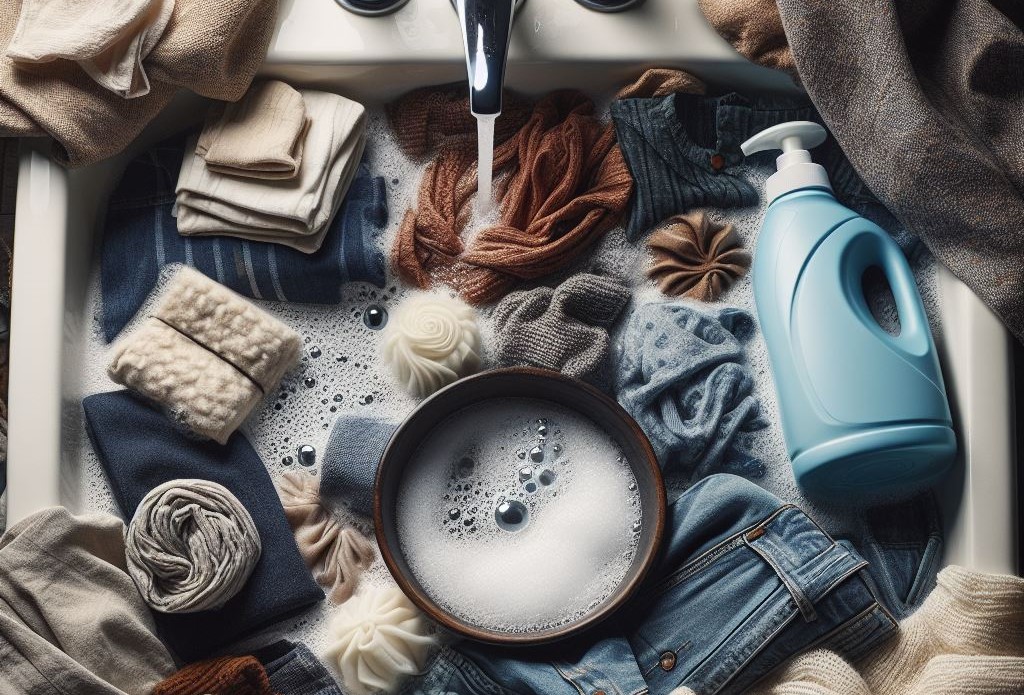
Boiling water advisory got you stumped about laundry? Fear not, for this comprehensive guide navigates the murky waters of washing clothes during these temporary sanitation hiccups. We’ll dive deep into safety considerations, alternative options, and expert tips to ensure your delicates are squeaky clean, not contaminated.
Can I Wash Clothes? The Short Answer:
Generally, yes. But a responsible rinse-and-repeat requires additional information:
Advisory Type:
- Boil: Washing is usually safe, with precautions.
- Do Not Use: Avoid all water contact, including laundry.
Contaminant:
- Bacteria/viruses: Hot water cycles (60°C+) significantly reduce risk.
- Chemicals: Refer to specific guidance from authorities.
Safety First: Key Precautions:
- No “Do Not Use”: If it exists, laundry goes on hold.
- Hot Water: Choose hot water cycles whenever possible.
- Thorough Drying: Completely dry clothes before wearing.
- Discoloration Warning: Turbid water might stain whites. Use pre-treatments or color-safe detergents.
- Water Conservation: If scarcity is the issue, prioritize essentials and explore water-saving options.
Beyond the Basics: Alternative Approaches:
- Handwashing: Use hot water and appropriate detergents. Thorough rinsing and drying are crucial.
- Laundromats: Check if they have their water source, like wells, unaffected by the advisory.
- Postpone Washing: If possible, wait until the advisory lifts for peace of mind.
Bonus Expert Tips:
- Stay Informed: Follow official updates from local authorities for the latest information and specific instructions.
- Double-Check Labels: Verify if any clothes require cold water washing, avoiding hot cycle risks.
- Clean the Machine: After the advisory lifts, run a hot water cycle with cleaning vinegar to remove potential contaminants.
Can I Use the Washing Machine During a Boil Advisory?
Yes, you can run the washing machine even when under a boil notice, unless authorities explicitly prohibit it. The exception would be if you have a washing machine that connects directly to your home water line to fill instead of using a separate basin.
Washing clothes in a standard washing machine is considered safe because most boil water advisories focus on water used for drinking, cooking, bathing, and hygiene where ingestion may occur.
However, there are a few precautions to take:
- Wash small loads so plenty of water remains for other essential uses
- Avoid washing whites and light colors as tap water may discolor or stain them
- Add a disinfectant like bleach to the wash cycle
- Run an extra rinse cycle to remove more contaminants
- Wash hands thoroughly after handling dirty laundry
Following these tips reduces the very low risks of exposure during laundering. Hang-drying clothes is also recommended to avoid contaminating your dryer.
Should I Use Bottled Water to Wash Clothes?
Using bottled water for washing clothes is not necessary. The amount needed to handwash or run most standard washing machines would be impractical. Exceptions are for special clothing like delicates or medical scrubs requiring sterile conditions.
Tap water is fine for laundering when basic precautions are followed, like adding bleach and doing an extra rinse cycle. The wash and rinse temperatures work to kill bacteria in clothing. The only risk is potential staining from sediment, minerals, or microbes in non-boiled water. But for most laundry, this is an affordable option.
Can I Wash Dishes in the Dishwasher During a Boil Notice?
Dishwashers are generally considered safe to use during boil water advisories if you follow a few rules:
- Ensure your dishwasher has a high heat drying or sanitizing cycle that reaches 150°F or higher
- Use a disinfectant like bleach or sanitizer tablets
- Make sure dishes are completely dry before removing them
- Do not use taps connected directly to your water line; use a separate basin to fill if needed
- Handwash non-dishwasher-safe items with boiled, bottled, or disinfected water
High-heat dishwasher cycles allow dishes to reach temperatures that kill bacteria. Adding bleach provides extra disinfection. Fully drying dishes prevents recontamination. Handwashing is still advised for baby bottles, cutting boards, etc. Avoid water-supplying air gap fixtures next to sinks during an advisory.
Is It Safe to Bathe, Shower, or Wash Hands During a Boil Notice?
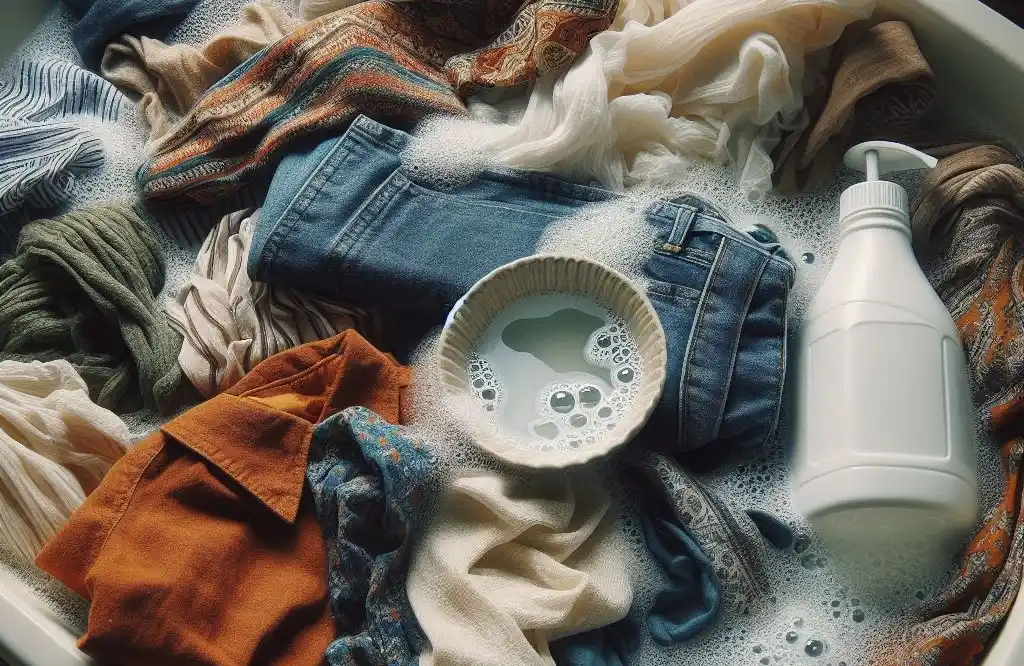
Bathing, showering, handwashing, and other good hygiene habits should continue during a boil water advisory. Purel or antibacterial soap is also safe if water ingestion is avoided. The advisory focuses on water uses with a risk of consuming or ingesting pathogens.
To stay clean and reduce contamination risks:
- Take quick showers instead of baths with less water swallowed
- Keep your mouth closed while bathing and avoid swallowing water
- Supervise small children closely to ensure they do not ingest water
- Wash hands for at least 20 seconds with boiled, bottled, or disinfected water after bathing
- Use an alcohol-based hand sanitizer containing at least 60% alcohol
Practicing caution prevents microbes from entering your mouth and making you sick if tap water contains bacteria. Baths do pose a higher risk, especially for infants, so stick to fast showers. Disinfecting or boiling water used for handwashing kills pathogens after contact with bare skin.
Can I Use Water Filters During a Boil Advisory?
Some water filters like pitcher filters, faucet filters, refrigerator filters, and whole house filters can be used during boil water notices, but they have limitations:
- Not all filters remove bacteria and viruses – Only certified microbiological purifiers can fully disinfect water. Other filters mainly reduce sediment, minerals, smell, taste.
- Filters must be properly maintained – Outdated cartridges allow contaminants through. Follow manufacturer’s instructions for replacing cartridges.
- Filtered water still needs precautions – Use filtered water only for washing hands, laundry, or bathing where boiling isn’t practical. Use boiled water for consumption.
Check with your utility or public health office about the safety of specific filtration systems in use locally. Carefully maintained filters reduce particulates for tasks like showering but don’t always kill pathogens. Boiling remains most reliable for drinking water purity.
Is It Safe to Brush Your Teeth During a Boil Advisory?
You can continue brushing your teeth carefully during a boil notice, but take steps to avoid ingesting tap water, including:
- Use boiled or bottled water to wet your toothbrush and rinse after brushing
- Keep your mouth closed and avoid swallowing water while brushing
- Consider using boiled or bottled water for young children to brush their teeth
- Rinse toothbrushes with boiled or bottled water after use
- Avoid water jet or electric toothbrushes that could aerosolize bacteria
The same bacteria causing a boil advisory can stick around on your toothbrush bristles. Take precautions by boiling water for rinsing and wetting brushes. Supervise brushing carefully for kids. Standard brushes are safer than water-spraying models. Practice good hygiene to limit microbes entering the mouth.
Is Tap Water Safe for Pets to Drink During Boil Notices?
No, pets should not drink unboiled tap water during boil advisories. Dogs, cats, reptiles, barnyard animals, and other pets and livestock can get sick from bacteria, parasites, viruses, or other contaminants triggering the notice.
To keep pets safe:
- Give pets bottled water or boiled then cooled tap water for the duration of an advisory
- Avoid adding unboiled water to a pet’s bowl throughout your home
- Prevent pets from drinking standing tap water in sinks, tubs, or toilets
- Monitor livestock to ensure their main water sources are not contaminated
Sickened animals can also spread illnesses through germs in their stools or saliva. Keep pets away from puddles, streams, or groundwater possibly containing pathogens too. Boiling and cooling water first kills disease-causing microbes to protect furry friends.
Can I Make Coffee, Ice Cubes, Baby Formula, etc?
Avoid any tap water ingestion, if possible, when under a boil notice. Water used for drinking, cooking, making beverages, or mixing infant formula should be boiled for 1 full minute then cooled first. This includes:
- Coffee, tea, juice, etc. made with water
- Soups, boiled eggs, pasta water, etc. for cooking
- Ice cubes from ice makers or trays
*Baby formula prepared from powder - Pet food made with water
- Any other consumption of unboiled water
Remember that disease-causing organisms triggering the advisory can survive refrigerator temperatures. So follow the “boil before use” guidance carefully. Either boil your tap water for a full rolling minute first, use bottled water, or drink canned or bottled beverages until authorities give the all-clear notice.
How Should I Disinfect Fruits, Vegetables, Utensils, and Kitchen Surfaces?
Proper disinfection is key to preventing the spread of contamination throughout your home during an advisory:
- Wash all fruits and vegetables with boiled, bottled, or disinfected water
- Use a dilute bleach solution to sanitize utensils, cutting boards, sinks, and counters
- Let dishes fully air dry before wiping with a dry cloth to avoid recontamination
- Soak plates, bowls, cups, etc. in a bleach bath before handwashing and allow to completely air dry
You can make a basic bleach disinfecting solution by adding 1 tablespoon of bleach per gallon of cool water. Soak or wipe items with this solution, then rinse thoroughly. These steps limit bacteria passing from contaminated water to surfaces to food. Take precautions until officials give the all-clear.
Can I Use Tap Water Once it Reaches a Full Boil?
Yes, allowing contaminated tap water to reach a rolling or full boil for one minute kills viruses, bacteria, parasites, and other pathogens making it safe for use after cooling.
The CDC and EPA both advise boiling is the most reliable method for homeowners to deactivate disease-causing microorganisms during any drinking water emergency or contamination event.
Simply bring water to a vigorous bubble all over the surface – a full rolling boil for 60 seconds. Then allow the boiled water to cool in sanitized containers before use for drinking, cooking, baby formula, pet water, handwashing or other essential purposes requiring disinfected water during a boil notice.
In Conclusion: Precautions for Using Water During Boil Advisories
A boil water advisory can disrupt normal household routines but following basic precautions allows you to clean, cook, bathe, and wash safely during temporary outages.
Remember:
- Continue laundry, bathing, showering, and handwashing but avoid ingestion
- Only use boiled, bottled, or filtered water for drinking and cooking
- Take care to keep pets and babies from ingesting any unboiled water
- Disinfect surfaces produce, and dishes properly
- Boil contaminated water for a full minute before any consumption
Stay up-to-date on when advisories are lifted in your area so you know exactly when your water is safe for all uses again. Adhering to public health guidance protects you and your family.
Boil Water Advisory
Boil Water Advisory
When local health officials issue a boil water advisory, it’s essential to understand how to handle everyday activities safely. A boil water advisory means your community’s water may contain germs that can make you sick. During such advisories, it’s important to use bottled water or boil tap water for specific needs.
Preparing Food and Drinks
For preparing food, drinks, or ice, and activities like dishwashing and hygiene routines such as brushing teeth and bathing, follow the advice provided. Always use bottled or boiled water to prepare and cook food. If bottled water is not available, bring tap water to a rolling boil for one minute (three minutes at higher elevations).
After boiling, let the water cool before use. Even if the tap water is filtered by a home water filter or a pitcher filter, it still needs to be boiled. Do not use water from any appliance connected to your water line, like your refrigerator.
Infant Feeding
When it comes to breastfeeding, it remains the best option for infant feeding. If you formula feed, try to provide a ready-to-use formula. For handwashing, you can use tap water and soap but follow your local public health guidance.
Scrub your hands with soap and water for at least 20 seconds, then rinse well under running water. If soap and water are not available, use an alcohol-based hand sanitizer with at least 60% alcohol.
Bathing and Showering
Be careful not to swallow water when bathing or showering. When bathing babies and young children, consider giving them a sponge bath to reduce the risk of them swallowing water.
For brushing your teeth, always use boiled or bottled water.
Washing Dishes
During a boil water advisory, using disposable plates, cups, and utensils is recommended. However, household dishwashers are generally safe if they reach a final rinse temperature of at least 150 degrees Fahrenheit (66 degrees Celsius) or have a sanitizing cycle.
For washing dishes by hand, wash and rinse them as usual using hot water. In a separate basin, add one teaspoon of unscented household liquid bleach per gallon of warm water. Soak the rinsed dishes in the water for at least one minute, then let them air dry completely before using them again.
Laundry and Cleaning
It is safe to wash clothes as usual during a boil water advisory. For cleaning, use bottled, boiled, or disinfected water for washable toys and surfaces. Pets can get sick from the same germs as people, so give them bottled or boiled water that has cooled.
Caring for Your Garden and Houseplants
You can use tap water for household plants and gardens without any concerns. Following these guidelines ensures safety and maintains hygiene during a boil water advisory.
What You Can & Can’t Do While Under a Boil Water Advisory
When there is a concern that your local water supply might be contaminated with bacteria or viruses, your area is placed under a boil water advisory. This means you cannot trust the water coming out of your tap, refrigerator, or ice maker for anything.
Bottled and distilled water are safe to drink and use without boiling, but you need a lot of it for your everyday water needs, especially as the amount needed grows with each person and pet in your home. Often, during a boil water advisory, the area might be short on water, making it almost certain that the amount of bottled water you find at the store won’t meet your needs.
Boiling Water
Luckily, if you have power in your home, boiling the water from your tap can make it safe to use. According to the CDC, here is how to properly boil water during a boil water advisory: Fill a pot with tap water, heat the water until it reaches a rolling boil, keep boiling for at least two minutes, then let the water cool and store it in a clean, airtight container.
Drinking and Ice
When you have some boiled water, you need to know when to use it. For drinking, do not rely on filtered water from your refrigerator or pitcher during a boil water advisory. These water filters do not remove harmful bacteria or viruses, including those found in the filtered water supply for ice in your freezer.
Instead, drink bottled water and use it to make new ice cubes. If you don’t have bottled water, follow the boiling steps above before drinking any tap water or using household filters.
Pets and Handwashing
Additionally, remember that your pets can get sick from the same germs. Provide them with bottled or boiled water as well. When it comes to washing hands with tap water during a boil water advisory, it is generally safe.
Ensure you follow proper steps: use soap, scrub for twenty seconds, rinse thoroughly, and dry with a clean towel. Proper hand hygiene is crucial, especially during the COVID-19 pandemic. If soap and water are not available, use a hand sanitizer with at least sixty percent alcohol.
Cooking and Food Preparation
For cooking, only use tap water that has been boiled. This includes washing fruits and vegetables, bringing water to a rolling boil for at least one minute before adding any food, and preparing coffee or other drinks.
Always use boiled water to wash food prep surfaces. Do not use tap water to brush your teeth or rinse your mouth. Use bottled or boiled water for this.
Bathing and Showering
You can shower during a boil water advisory, but be very cautious not to swallow any water. Young children should be supervised to prevent them from ingesting water or getting too much water in their eyes. Consider giving them a sponge bath instead.
Washing Dishes
When it comes to washing dishes, it is safe with some modifications. If you have power and sufficient water pressure, you can use your dishwasher if it has a sanitation cycle or reaches a final rinse temperature of at least one hundred fifty degrees Fahrenheit.
For hand-washing dishes, use a bleach solution to ensure they are adequately disinfected. Combine one teaspoon of household bleach with a gallon of water in a clean container. Wash and rinse the dishes with hot water, then soak the rinsed dishes in the bleach solution for at least one minute and let them air dry on a clean surface.
Laundry
Finally, it is safe to wash clothes as usual if you have power and sufficient water pressure. Your washing machine can still be used normally during a boil water advisory.

